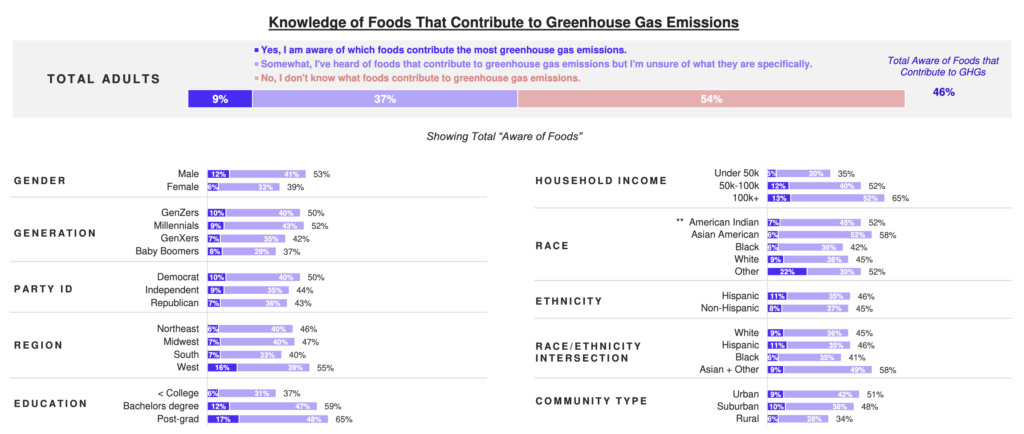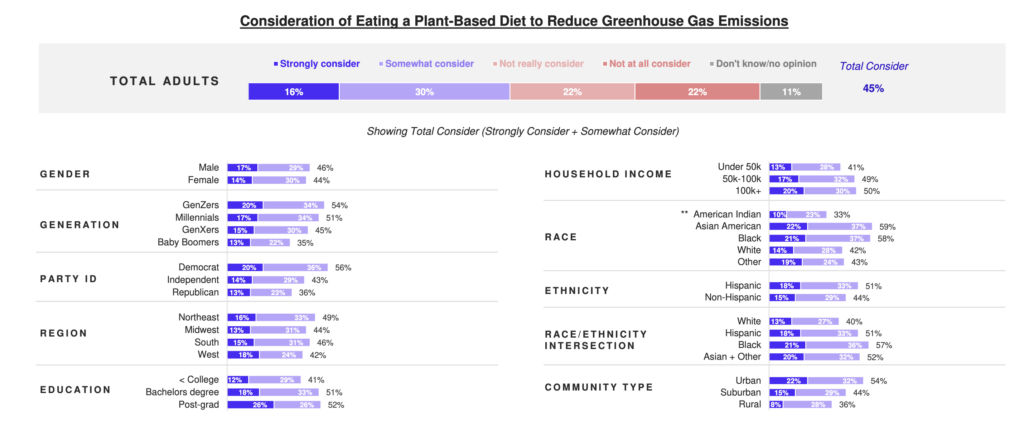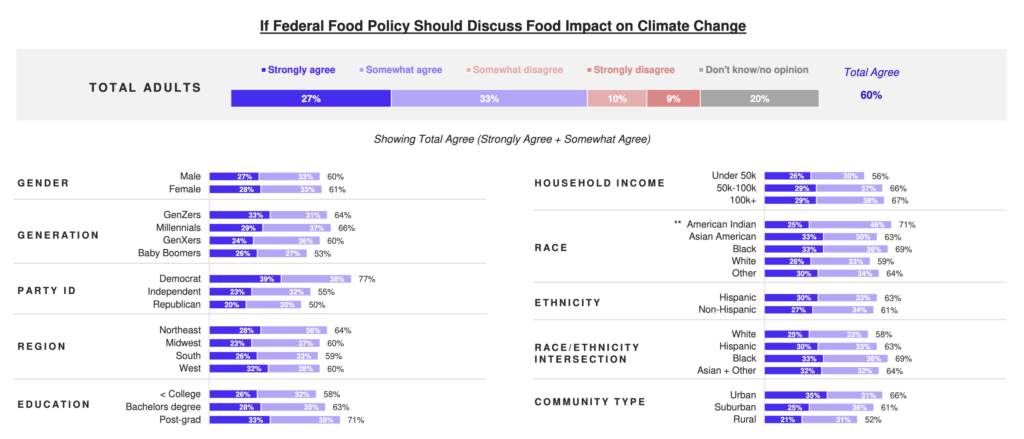Americans Know Beef is Bad for the Planet, And They Want Their Leaders to Talk About It
4 Mins Read
Over half of Americans identify beef as the most polluting food, and many are open to eating plant-based, but they need policy changes to support the shift.

This story is part of The 89 Percent Project, an initiative of the global journalism collaboration Covering Climate Now.
Americans are hurting over the cost of beef to their wallets, and many also seem to know about its cost to the planet, a new survey has found.
Beef is the most emissive food on the planet, generating twice as many greenhouse gas emissions as the next most polluting food, dark chocolate. When asked to rank five foods based on emissions, 54% correctly identified beef as the top emitter.
That said, surprisingly, a fifth of respondents ranked vegetables as the top polluting food, and another 10% said tofu. This was followed by cheese (9%) and nuts (7%).

Conducted by the Physicians Committee for Responsible Medicine (PCRM) and Morning Consult, the survey involved just over 2,200 adults and looked to explore Americans’ relationship with food sustainability ahead of Earth Day.
The results show that despite the confusion about the climate impact of food production and the discontent around ultra-processed meat alternatives, nearly half of the respondents (46%) would consider a plant-based diet for the sake of the environment. Moreover, they’re willing to back policies that educate them and address the problem.
Consumers would eat plant-based despite climate confusion

Globally, the overall food system is responsible for a third of all emissions. This is mainly due to animal agriculture, which accounts for nearly 60% of the sector’s GHG footprint. In fact, according to one study, meat and dairy production is the leading cause of climate change.
According to the survey, more than half (54%) of Americans don’t know what foods contribute to greenhouse gas emissions, while only 9% know for certain. A Millennial postgraduate man who hails from the west, votes blue, and earns over $100,000 is most likely to be able to tell you which food items pollute the planet.
The results are reminiscent of previous research demonstrating the disconnect between food and climate change in the US. In 2023, one poll showed that 40% of Americans didn’t believe consuming less red meat would help lower emissions, and months later, another survey found that 74% of them thought cutting out meat would have no impact on the climate.
However, the PCRM-Morning Consult research reveals that 16% of consumers would “strongly consider” eating a plant-based diet to reduce emissions, and another 30% would “somewhat consider” it. While Gen Z and Black adults are among the least likely to identify which foods are the highest emitters, they’re the most receptive to eating vegan.

Americans want their government to step up
The pollsters believe the findings exhibit the need for public education about agricultural emissions, with Gen Z and Black adults again the most supportive of policy changes that increase awareness about this.
This is likely easier said than done, considering the vast climate cutbacks that have already occurred under a president who has a hard time believing climate change is real. Meanwhile, in his quest to Make America Healthy Again, Robert F Kennedy Jr has been singing the praises of raw milk and beef tallow while attacking more sustainable plant-based alternatives for being ultra-processed.
The American public, though, agrees that federal food policies – like the national dietary guidelines – should discuss the impact of food on the planet. It’s a sentiment that 60% of the survey’s respondents agree with, and only 19% don’t. This has bipartisan support too, resonating with 77% of Democrats, 55% of independents, and 50% of Republicans.

It’s a pertinent question, since the scientists who advise the USDA on the dietary guidelines have recommended cutting back red meat and prioritising plant-based proteins instead. It remains to be seen whether the government adopts these measures later this year.
Most adults (59%) also agree that the government should incentivise livestock farmers to transition towards plant-based farming, a belief that rings true across party lines, income levels, races, and ages.
However, a carbon tax on meat and dairy farming – like the one Denmark will begin in 2030 – is much more divisive. Two in five Americans agree that the livestock industry should be taxed to help offset climate change, but the same number disagree too. And one in five are unsure or neutral about this issue.
According to PCRM, though, this has to do with the perception that those taxes will hurt their own pockets, underscoring that while planetary costs matter to Americans, their wallets likely matter more.



